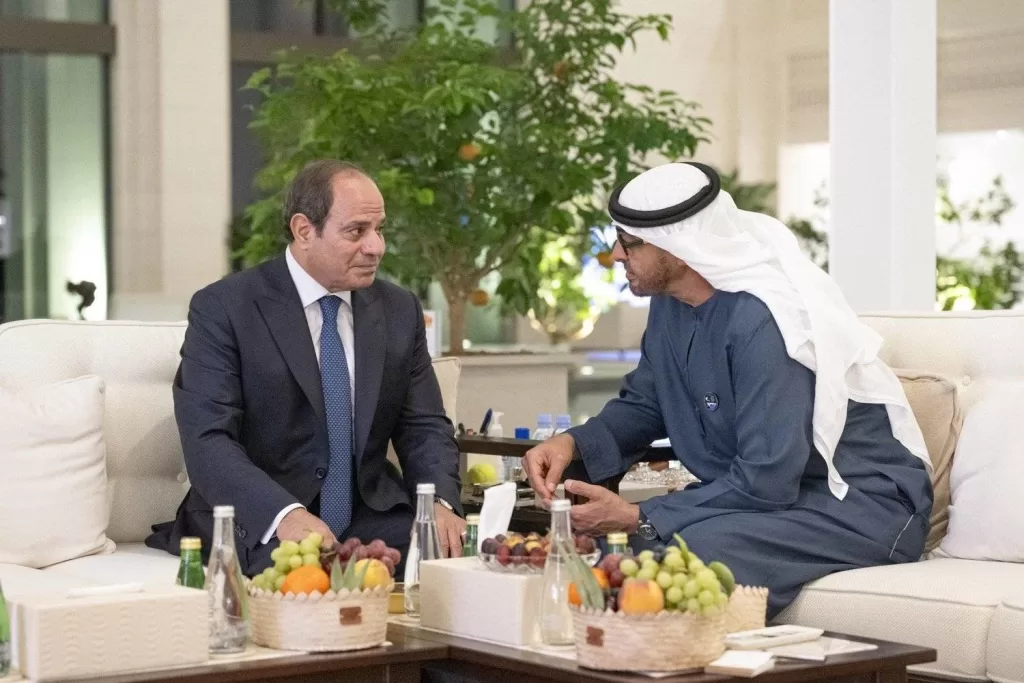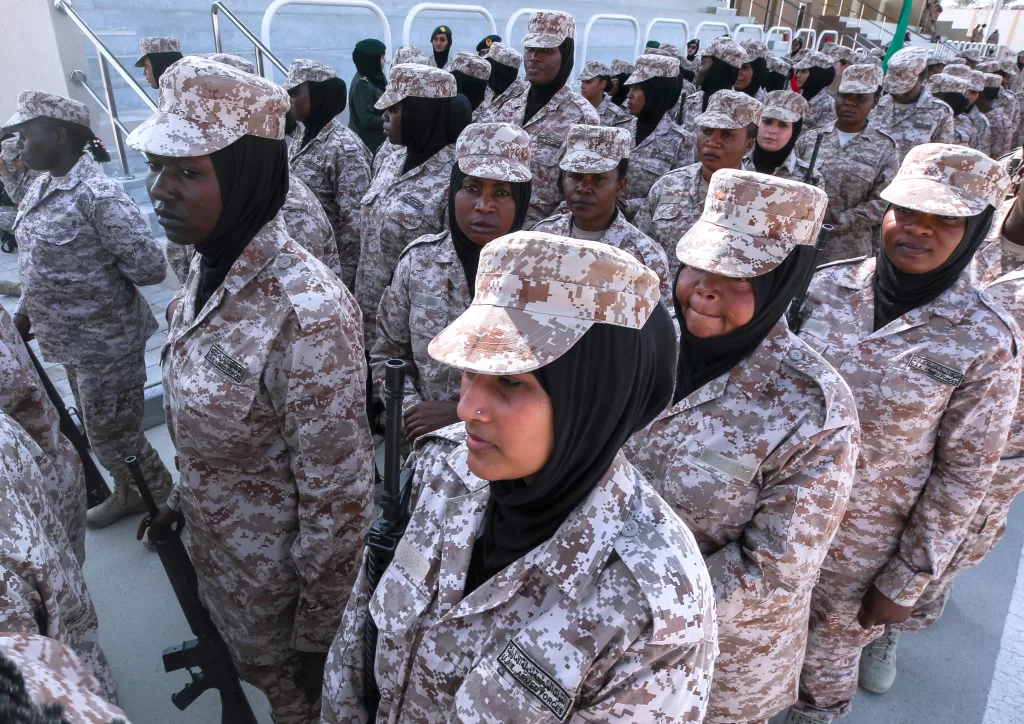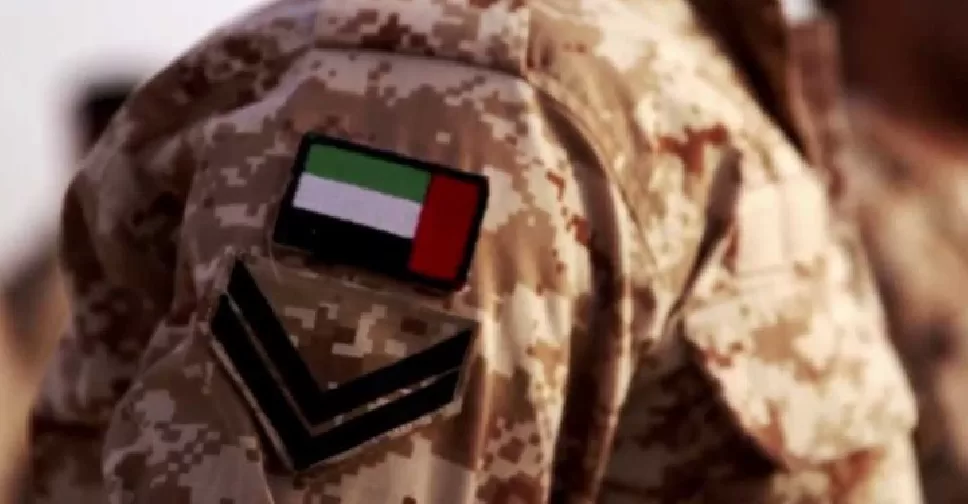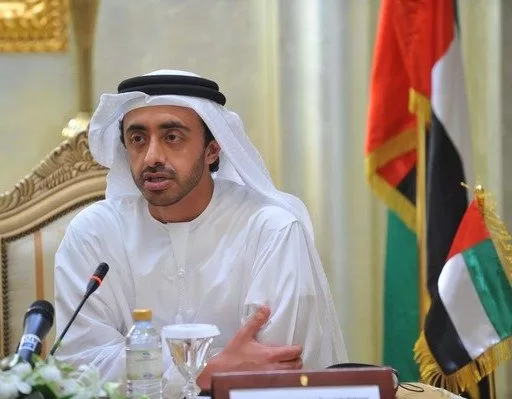Abstract
Rise of diplomacy, dialogue and development at the regional and international power politics especially after the horrendous events of World War II has changed the rules of the game. Terms of engagements have been redesigned, reshaped and reframed around the globe over the period of time.
Our modern international political history and diplomacy are full of prime examples which diverted the imminent war through rigorous meaningful diplomatic engagements because war is not a solution and violence always confronts defeat. Peaceful co-existence, respect for territorial sovereignty and the last but not the least respect for international law guarantees international harmony.
Arab world has been facing different gigantic challenges since 2010. It has been periods of upheavals and harmony, bullets and ballots in most parts of the Arab world. Only few countries succeeded to initiate different effective engagement policies to promote dialogue, peace and cooperation in and within the region in order to resolve conflicting realties. UAE has been proactive in the region and the Islamic community and rigorously participated in international affairs throughout the 2011 and has hub and leader of all these activities.
UAE reaffirmed its continued extension of humanitarian assistance programs to the government and as well as people of Pakistan in the post-flood period. UAE appreciated Pakistan role in the war against terror as front line state. UAE also called to international community to support the people of Pakistan in order to alleviate their sufferings caused by the recent deadly flood in the country. The UAE Magnificent 7 and most recently held joint ministerial meetings between the two countries further strengthened bilateral relations.
UAE played an important role in the formation of Friends of Democratic Pakistan (FoDP). Initially, UAE pledged $ 300 million. UAE hosted many meetings (ministerial & public-private conference) of FoDP and tried its best to highlight the aim, importance and utility of this forum to the world at large for socio-economic development of Pakistan. Time and again, UAE government reaffirmed its support to Pakistan to overcome its macro-economic difficulties.
UAE wise leadership led its people for greater socio-economic prosperity, political harmony and cultural unity. In a speech to the United Nations General Assembly in September, the UAE Minister of Foreign Affairs, His Highness Sheikh Abdullah bin Zayed At Nahyan highlighted UAE highlighted UAE coordinated preventive diplomatic efforts for escalation of tensions and resolution of conflicts occurring in the GCC, MENA and beyond during 2011. Recently, Lieutenant General Sheikh Saif Bin Zayed Al Nahyan, Deputy Prime Minister and Minister for Interior urged to have further bolster cooperation among the GCC security authorities because “the security of the Gulf is the security of the whole world. It emphasized the importance of maritime piracy and stressed the need to have mutual naval cooperation among the GCC states.

UAE stressed the need to have closed cooperation in the fields of security, defence/military, intelligence information sharing, and the last but not the least peaceful nuclear energy cooperation among the GCC states. UAE strongly suggested that the GCC states (Bahrain, Kuwait, Oman, Qatar, Saudi Arabia must get their act together for their collective security umbrella. UAE reaffirmed their commitments to be transparent, open and fair to international regulatory bodies i.e. IAEA for the implementation and execution of their peaceful nuclear energy programs in the region.
This research study highlights some effective foreign engagements of the UAE which succeeded to restore peace, political dialogue and harmony in many regional countries. Its efforts to cope with natural calamities, piracy and terror are highly appreciated by the regional as well as international regulatory bodies. Its global humanitarian assistance drive has reached a new level in the world.
This research study would be useful to teachers and students of international relations, political sciences, economics, and journalism.

UAE Reconciliatory Role
United Arab Emirates played remarkable job to bring peace in boiling Egypt and troubling Tunisia. UAE brotherly offered its diplomatic support to restore security, social and economic development and stability in these countries. UAE has been has firm believer in collective line of action. It played an active role in the UN approved air strike campaign to protect civilians in Libya from the widening military crisis among the different factions as well provided generous humanitarian assistance for the war ragged people. Moreover, it was among the first countries to accept the National Transitional Council for the betterment of its struggling people.
UAE rigorously coordinated its diplomatic efforts with Saudi Arabia to bring peace back in Syria and stop ongoing socio-politico saga and economic fiascos. It tried its levels best to convinced Syrian government for the carrying out of meaningful political dialogue and reforms to fulfill the aspirations of its own people.
UAE along with Saudi Arabia successfully protected the sovereignty of Bahrain by sending troops in its time of national crisis which ultimately proved to be security paradigm shift in the Gulf Cooperation Council (GCC). UAE strongly denounced foreign intervention in the Bahrain and sincerely supported dialogue process. It was actively engaged in attempts to negotiate a peaceful resolution of conflicts in Yemen and by virtue of its effective diplomacy a peaceful accord of transition has been reached between the government and the opposition.
UAE reassured its commitments for the progress and prosperity of the people of Iraq through comprehensive national reconciliation, collective wisdom without any discrimination. It also reiterated the necessity to respect the territorial integrity, sovereignty, independence of Iraq, and furthermore, safeguarding its Arab and Islamic identity.
UAE supported the efforts of the Lebanese government towards achieving security, stability and national unity and called for respecting the sovereignty of the Lebanese state and for ceasing the repeated Israeli violations of the Lebanese airspace, waters, territories and regional safety in accordance with the Security Council Resolution 1701.
UAE role in Middle East region is highly appreciated. In his speech to United Nations General Assembly in September, the UAE Minister of Foreign Affairs, His Highness Sheikh Abdullah bin Zayed Nahyan showed UAE great concerns at the deteriorating conditions of the Palestinian people. UAE continued support to Palestine has achieved tremendous recognition at different international forums and agencies. It expressed its full support for the Palestine Authority in its attempt to obtain membership of the United Nations. UAE initiated Arab Peace drive for achieving a peaceful settlement of the Israel-Palestine issue based on the relevant international resolutions that will lead to a just and lasting peace and to the establishment of a Palestinian state with Jerusalem as its capital.

UAE Peacekeeping Missions
UAE peacekeeping missions brought signs of peace, hope and life to conflict tattered countries in the world. It vigorously extended its effective contributions in peacekeeping operations, protecting civilians, and re-building efforts for states which have just emerged from violent armed conflicts. Bosnia, Somalia, Afghanistan and Sudan are the prime examples. UAE peacekeeping missions have been gained recognition and acknowledgment from the different peacekeeping organs. In Afghanistan, UAE provided over US $ 1.5 billion dollars over the last decade for rehabilitation and reconstruction programs. It built schools, health clinics, roads, bridges, community centers and mosques.
120th Ministerial Session
Foreign Ministers of Gulf Cooperation Council Concluded their 120th ministerial session held in Jeddah under the chairmanship of UAE Foreign Minister HH Sheikh Abdullah bin Zayed Al Nahyan. The joint declaration contained UAE principal position on issues relating to fight against terrorism, relations with Iran, the Iranian nuclear file, the current Arab situation including the Palestinian issue and the Arab-Israeli conflict as well as the Yemeni, Iraqi, Syrian, Libyan, Lebanese, Sudanese, South Sudanese and Somali issues.
UAE Policy Stance
During 2011, once again through its rigorous diplomatic efforts, the world at large supported UAE genuine cause and principal stance on its three islands, Abu Musa, Greater and Lesser Tumb occupied by Iran since 1971. UAE is ready to resolve the issue through bilateral negotiations or through referral to the International Court of Justice.
UAE Regional Development Initiative
In recently held extraordinary meeting Arab Finance Ministers appreciated UAE initiative of development. They all endorsed the UAE initiative for more economic and financial reforms with the participation of the national, regional and international corporations. Obaid Al Tayer, UAE State Minister for Financial Affairs called for closer economic and banking cooperation within the region for the creation of more employment, sustainable development and social development.
Global Humanitarian Assistance Drive
Humanitarian assistance has been one of the salient features of the UAE foreign policy. UAE government, its charities, i.e. Khalifa Bin Zayed Humanitarian Foundation, UAE Red Crescent, UAE Armed Forces, Zayed Foundation for humanitarian and charitable work and Sharja Charitable Society and people achieved new skies of generosity by rigorously initiating diversified humanitarian assistance activities around the globe during 2011.
Global Humanitarian Assistance (2010)
According to Global Humanitarian Assistance (2010) the UAE has become the first non-western nation in the global Top 10 humanitarian aid donors per head of population. Donations of US$138.9 million in 2009, an average of $30.30 (Dh111.28) per person, put the country in seventh place. The United Arab Emirates has pledged US$7,194,000 for a number of UN development programmes and funds during the year 2012. Ambassador Ahmed Al-Jarman, Permanent Representative of the United Arab Emirates to the United Nations announced this before the United Nations Pledging Conference for Development Activities 2011.
UAE Notable Humanitarian Assistance Programs
UAE charities carried forward the golden spirits of generous humanitarian assistance activities in all the continents of the world not confined to Australian flood, New Zealand’s earthquakes, Palestine camps, Libya, Iraq, Yemen, Sudan, Bosnia and Herzegovina, Thailand, Afghanistan and the last but not the least Pakistan for the help of needy people confronted colossal natural catastrophes. UAE is now the second largest non-DAC donor of humanitarian aid since 2004.
Development Programs
A large number of development projects relating to education, infrastructure, health, clean drinking water have also been carried forward in different parts of the world especially Abu Dhabi Fund for Development and Dubai Cares. Pakistan, Afghanistan, Egypt, Palestine Authority, Seychelles and the South Pacific were the main recipients of aid during 2011.
Humanitarian Aid to Pakistan
UAE is our strategic partner which always stands first to extend generous humanitarian assistance in times of national crises in shape of devastating floods, fatal earthquakes or thunderstorms. Sheikh Khalifa Bin Zayed Al Nahyan, President of the UAE is always the first one to respond immediately on the requests of government of Pakistan by advising the UAE charities for relief goods and other related activities. UAE Charities humanitarian assistance programs and untying efforts in the relief, rescue, recovery and rehabilitation fields in earthquake of 2004 and series of floods 2010-2011 have already won the hearts and souls of the struggling local people.

Tremendous Role of UAE Armed Forces
UAE Armed Forces played a magnificent by carrying out grand operations of rescue, distribution of relief goods, and logistics to different parts of Pakistan. Chinooks rigorously participated in the humanitarian assistance activities in the most flood affected regions of Punjab, Sindh, Khyber Pakhtunkhwa and Balochitsan. UAE Military Field Hospitals launched effective vaccination campaigns to save children, women and elderly people from different diseases. Water purification plants were also set up to provide clean drinking water in the most flood affected areas.
Most recently, UAE Embassy in Pakistan under the supervision of its ambassador Eissa Abdullah Al Basha Al Noaimi demonstrated strong commitment towards the greater human cause of helping the needy, poor and struggling people of Sindh, currently confronting devastating flood. UAE charities were busy to help the most affected people of Sindh province, Badin, Sanghar Mohammed Tando Khan, Mirpur Khas and Nawabshah battling out their survival.
UAE Ambassdor Noiami appreciated the UAE team carrying out its gracious cause of humanitarian assistance. He assured that existing humanitarian assistance will be continued along with the successfully going on UAE Assistance Project to Pakistan already, gathered momentous appreciation from GOP and its people. He said that UAE relief team activities including distribution of foodstuff have succeeded to lessen some basic problems of the downtrodden people.
On development front, the UAE allocated $100 million dollars to Pakistan for the construction of more than 51 schools (primary & secondary), technical institutions, several healthcare centres, building roads and bridges, infrastructure and supply of safe drinking water schemes. Work on these projects are going briskly and it is hope that after the completion it would generate employment and reduce ratios of poverty in these selected areas of Swat, South Waziristan, other North Western districts and the tribal area.
UAE played extraordinary work to minimize the horrible effects of Horn of Africa caused by hunger, poverty and famine through its extended spells of humanitarian assistance activities in African continent. Unlimited precious lives were saved by providing food, shelter, cloths and medicines. Most recently, According to UAE Red Crescent aid relief contained 84 tonnes of relief materials, including 53 tonnes of canned food and dates, 15 tonnes of emergency tents and 15 tonnes of carpets and floor mats were sent to Somalia and Ethiopia. Another plane was sent to the Republic of Djibouti, carried 93 tonnes of food items and tents, and distribution was done on the Djibouti borders. The UAE Charity Initiative for treating one million children has been launched a massive vaccination programme to protect children in the Horn of Africa against contagious diseases.
UAE Foreign Minister HH Sheikh Abdullah bin Zayed Al Nahyan promised a grant of US$250 million for reconstruction projects in Afghanistan. UAE peace troops have been engaged in diversified humanitarian work such as providing aid and medical services for the last eight years. The UAE has also provided over US $ 1.5 billion dollars over the last decade for rehabilitation and reconstruction programmes. There are six funded medical clinics, 11 schools, 38 mosques, a general public library, a hospital, and an accommodation for displaced families. In 2009, the UAE committed more than Dh1.26 billion in aid, which represents 14 per cent of its total foreign aid in 2009. In addition to the government’s provisions, the people of the UAE contributed $22 million for food, medicine, housing and shelter, and basic relief projects.
Secretes of Socio-Economic Prosperity
UAE leadership jointly decided to form a federation in 1971 and worked collectively for the common socio-economic development of all the seven emirates. Economic liberalization, financial reforms, active participation of private sector, and business & investment friendly policies subsequently made United Arab Emirates as one of the leading emerging economy in the world.
Latest Reports of International Financial Agencies
The latest report of the World Bank and the International Finance Corporation (IFC) Doing Business 2012: Doing Business in a More Transparent World clearly show that the UAE has improved its global ranking by two to reach 33 in 2011. According to the latest Global Competitiveness Report by the World Economic Forum (WEF), 2011, UAE has been included in the most advanced stage of ‘innovation-driven economies’ in the world for the second consecutive year because despite ongoing global financial meltdown and increasing of public debts ratios around the world, UAE economy achieves sustainable growth.
Different Meaningful Marco-economic Policies
UAE is now a tax free economy with no controls on the inflow or outflow of capital or profits and keeps the true spirits of a free market economy. Now, its macro-economy is strong, stable and sustainable. Even, ongoing Euro-debt crisis, deadly global economic recession and sever financial crunch could not pose any serious problem to its march towards greater socio-economic turn-around.
Miraculous Social Development
Right from the beginning, social development has been epicenter of UAE government’s policy. Successive leaders and especially, His Highness Sheikh Khalifa bin Zayed Al Nahyan, the Vice President and Prime Minister and Ruler of Dubai, His Highness Sheikh Mohammed bin Rashid Al Maktoum initiated effective social development programs and allocated substantial funds in the budgets throughout the UAE in order to pass the trickledown effects of robust economic growth to their populace.
Budget Allocations
Keeping in view the importance of social development the UAE government has already increased allocations for development expenditure in the provisional federal budget 2012. The social services, including health care, education and housing, accounted for 47 per cent of the total budget i.e. Dh 41.4 billion (US $ 11.2 billion). Higher education, will receive Dh 8.26 billion (US $ 2.25 billion) or 19.6 per cent, the bulk of which will be spent on plans to build new schools and other educational institutions and to upgrade the educational environment.
Now, their constant paradigm shift is paying dividends in shape of better education, health, shelter and clean drinking water facilities in all the seven federating units i.e. emirates. All reports of World Bank, IMF and United Nations indicate that UAE would be the first country to achieve Millennium Development Goals (MDGs) in the region. Its literacy rate is the highest in the region.
Women Empowerment
Women empowerment drive has achieved splendid success. Now, women account for around 70 per cent of all university graduates in the country and fill around two thirds of government jobs. UAE has now four women members of the Cabinet and ambassadors. They are now air force pilots and armed forces recruits. Moreover, it has achieved new skies in advance technologies, development & research and human resource management. It has emerged as knowledge-based economy.
Inter-Faith Harmony
Since it inception, UAE has been following the holistic spirits to promote inter-faith harmony, tolerance, humanity and peace towards all nationalities due to which now it has become country of maximum foreign nationalities. There are more than 40 churches and cathedrals as well as to places of worship for other faiths peacefully exist in the UAE which endorses the vision of its leadership.
UAE attracts people of many nationalities for securing brighter future, availing better services and the last but not the least enjoying cultural diversity in a friendly environment. Even more than 1.4 million Pakistani expatriates are also working in the UAE. Now, it has become one of the ideal destinations for tourism in the region.
Salient Features of Marco-Economy
According to the latest report of the National Bureau of Statistics (October, 2011) the UAE economy is expected to grow by 4.2 per cent in real terms this fiscal year as compare to 2010. UAE’s nominal gross domestic economy is the second best in the region and reached to over Dh1 trillion in 2010 compared to around Dh250 billion in 2001. It is also the Middle East’s largest consumer market.
Gross Domestic Development Projections
Most recently, the Institute of International Finance (IIF) stated that its economic growth is projected to remain resilient in the face of global economic upheavals and regional political turmoil. The IIF has forecast GDP growth of 4.4 per cent and 3.1 per cent for 2011 and 2012, respectively. Moreover, its non-hydrocarbon growth is expected to be supported by high public spending on infrastructure, including spending through government-related entities (GREs). According to the Dubai-based Emirates Industrial Bank (EIB), despite a slowdown in 2009 because of the 2008 global fiscal crisis, the country’s GDP in current prices has leaped by nearly 15 per cent annually over the past decade, one of the highest growth rates in the world.
Diversification Policy
Diversification drive of economy is now paying its dividends. UAE government’s constant support to industrial sector has made it UAE less reliant on revenue from its oil exports. Its non-oil foreign trade surged by 14 per cent in 2010, to Dh 754.4 billion (US $ 205.3 billion), compared to 2009. Exports increased by 27 per cent and re-exports registered 26 per cent upwards growth, with non-oil imports rising only by 8 per cent. Foreign trade has continued to rise throughout 2011. Prospects are even brighter in the years to come. The UAE also ranked 25th largest global importer of goods and 19th exporter in the world 2010 becoming the only Arab nation to be among the top 30 markets. The UAE’s commercial exchange reached at $405 billion, the largest in the Arab region in 2010.
Leading Role in Merger & Acquisition
Moreover, the UAE took the lead in terms of merger and acquisition deal volume in the Middle East and North Africa with 32 deals in 1H2011 compared to nine in 1H2010, resulting in a remarkable increase of 226 percent. Official data showed cumulative inflows of FDI into the UAE totalled $75.7 billion during 2000-2011. As for FDI outflow, the UAE emerged as the largest capital exporter in the Arab region, pumping nearly $52 billion into global markets during 2000-2009.
Progressive Manufacturing Sector
Oil and gas revenues now account for 30 per cent of GDP despite high oil prices at international markets. Now, manufacturing sector is active, healthy and productive. It is one of the leading sources of employment generation, exports and revenues. It is hoped that a strong manufacturing industry that meets the needs of the international markets will help protect the UAE from the continuing economic turmoil.
Blossoming Tourism Sector
Tourism has become one of the fastest growing sector and accounts for more than 10 per cent of GDP. UAE welcomes more than 12 million visitors in a year which makes its hotel occupancy highest in the region. Its national airlines Abu Dhabi’s Etihad, Dubai’s Emirates and FlyDubai and Sharjah’s Air Arabia are providing every possible facility of aviation.
Stable Construction Sector
Stable construction sector is contributing positively in the macro-economy. It employs 50 percent of the total labour force. According to official statistics, the share of construction and the real estate sector in Dubai’s GDP declined from 30 per cent in 2007 to 23 per cent in 2010.
Resilient Banking & Financial Sector
Resilient banking and financial sector is providing essential inputs for survival and production. The IIF report (2011) indicated that the country has one of the strongest fiscal positions in the region. It projected total gross foreign assets of the UAE to continue rising to about $600 million by end 2012. It would result in an overall net external asset position of about $480 billion, equivalent to 130 per cent of 2012 projected GDP.
Establishment of Emirates Development Bank
Most recently, the UAE has announced the establishment of the Emirates Development Bank, which has been set up to spur economic growth and improves living standards by providing finance for development projects and other initiatives.
Abu Dhabi’s 2030 which stands for further diversification of economy, better higher education, entrepreneurism, research, development of small to medium-sized businesses and knowledge-based economy would achieve its desired goals in the days to come.
Concluding Remarks
The effective strategic vision of the United Arab Emirates holds the key of further strengthening of its socio-economic development, attracting inflows of FDIs and maintaining its free market economy status. Further diversification of the economy, development of Small and Medium Enterprises (SMEs), service sector, exports, and manufacturing are must to achieve the desired goals. Growth of renewable energy resources would be value-addition in the economy.




